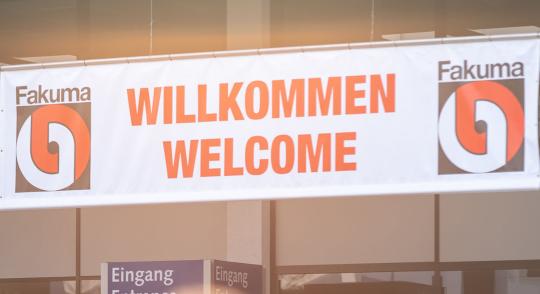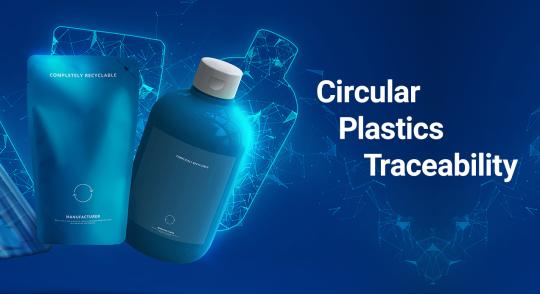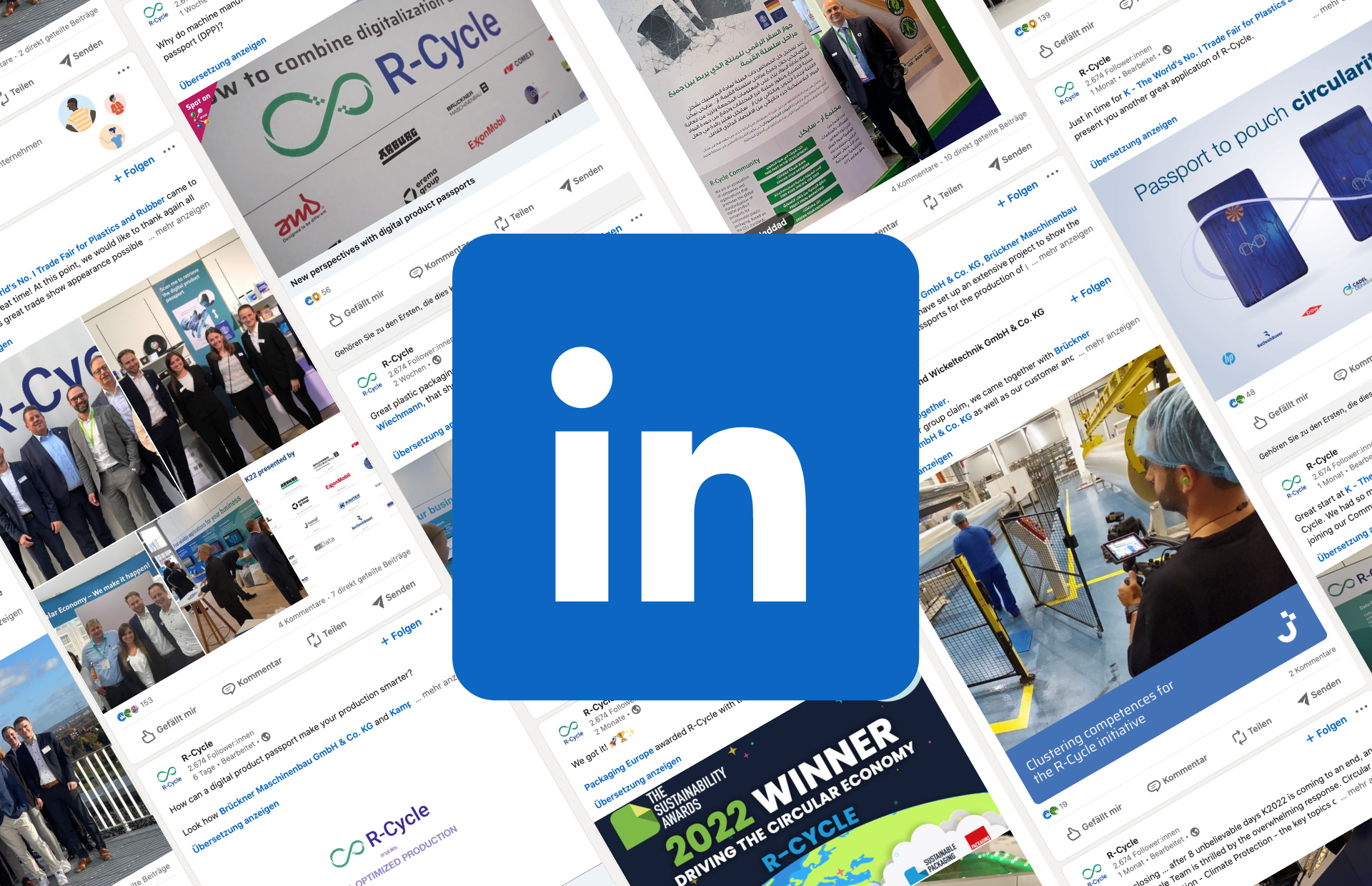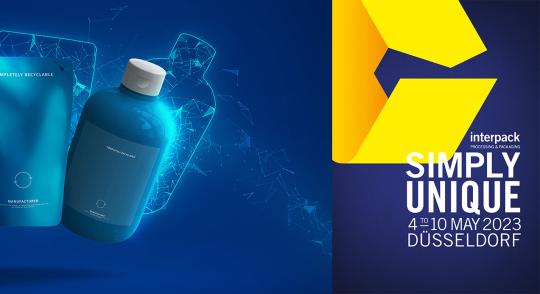

EVERY INGREDIENT IS RELEVANT: Brückner Maschinenbau tests PU-based printing inks for improved recycling
When it comes to recycling packaging, it is mostly the plastics used that are considered. However, a large proportion of the plastic films used for this purpose are printed and, with the printing ink, contain a further ingredient that has a decisive influence on recyclability. The recyclate quality from printed film waste is particularly often low, since the color, odor and processability are only sufficient for simple applications. The black trash bag is then often the second and at the same time last cycle of many plastics.
R-Cycle member Brückner Maschinenbau is therefore researching design optimizations for printed films together with other partners as part of the PrintCYC project. The latest finding: a PU (polyurethane)-based ink system significantly increases recyclability. The test showed that the alternative ink formulation leads to a significant improvement in the mechanical recycling process on a production line typically used for reprocessing printed film waste materials in practice. Due to the high temperature resistance of the inks (> 240 °C), neither volatile by-products, nor odor or gels were observed. Under these conditions, high-quality recyclates with color-stable properties could be produced. An initial assessment of the environmental impact also revealed lower greenhouse gas emissions and lower energy consumption in the mechanical recycling of the films compared with the production of virgin material.
Against this backdrop, it is clear that not only information about the actual plastic, but about all of its ingredients is important for recycling plastic packaging. R-Cycle transports this information through the entire value chain – from the producer to the processor of plastic waste. In this way, products recorded and marked with R-Cycle can be reliably identified and recycled to a high standard.
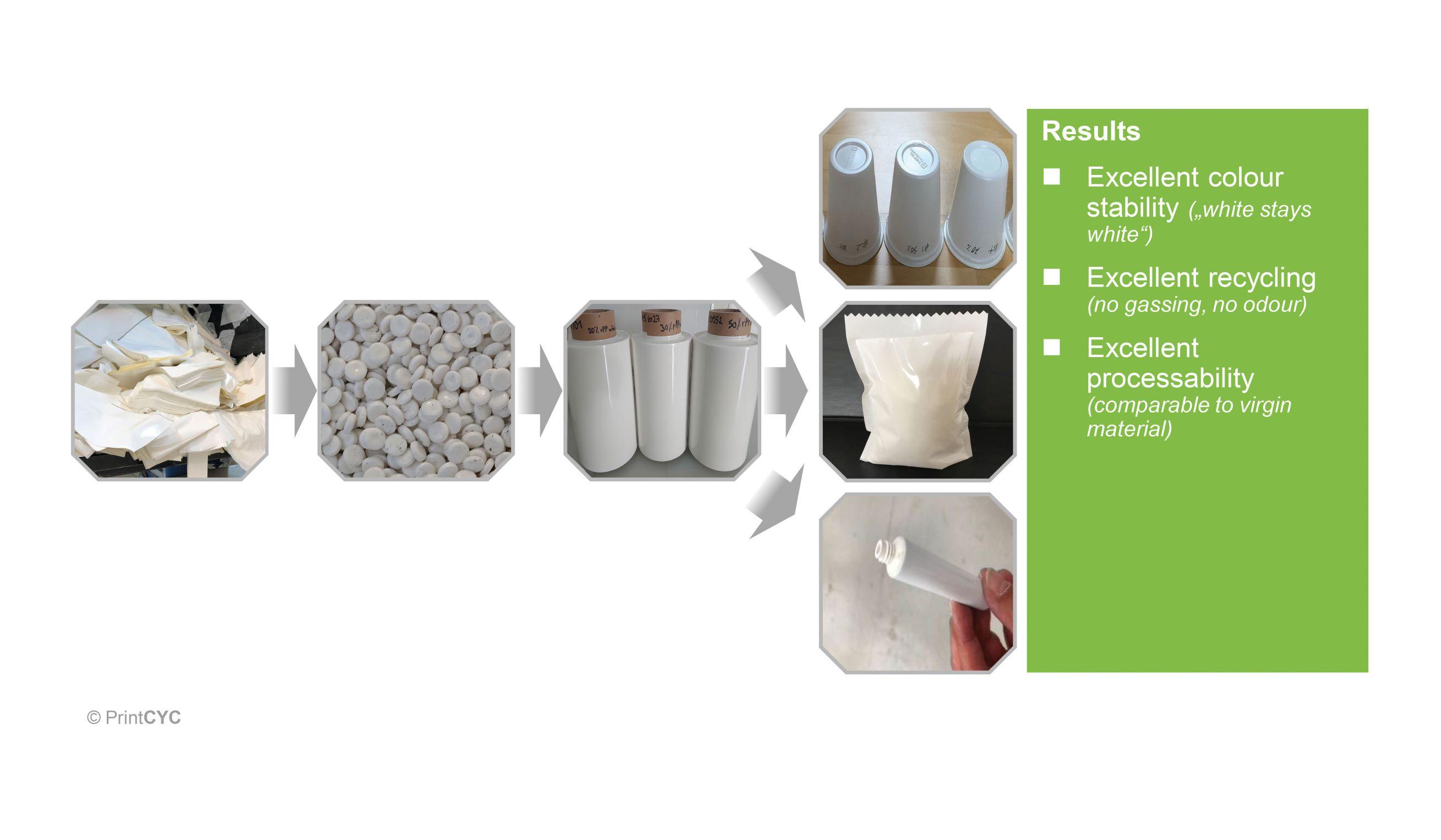

This might also interest you
